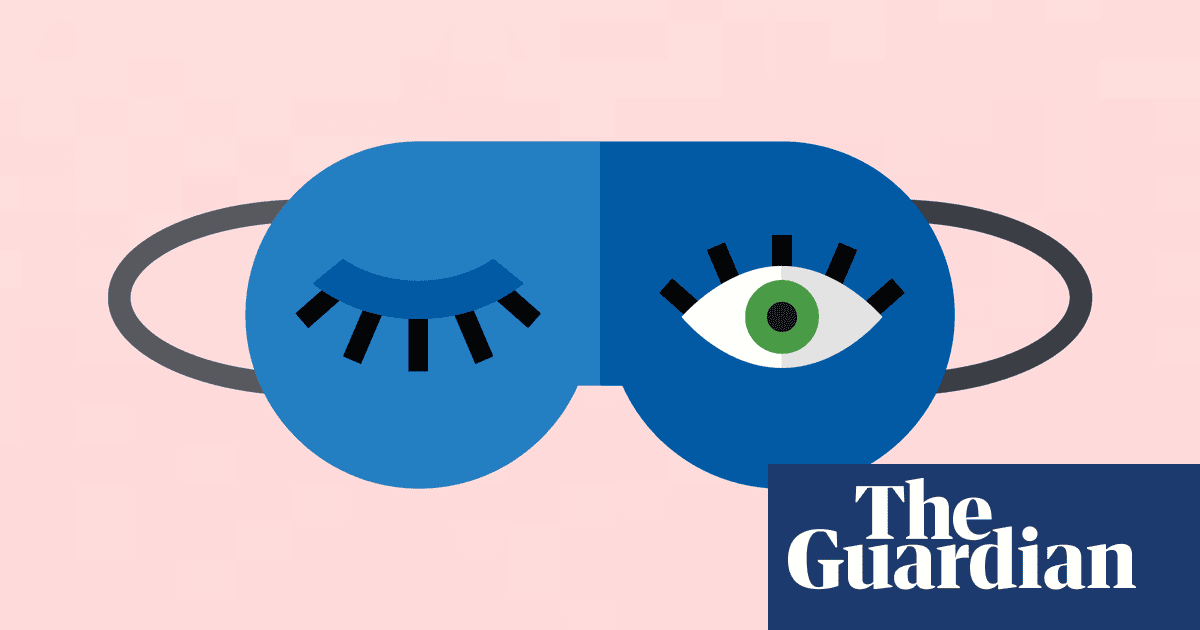
Stars illuminate the darkness as a thin coat of hoarfrost begins to form on the grass outside my window. Sitting on the couch, I’m snuggled up with a blanket, with the fire roaring and a cup of hot chocolate by my side.
It might sound like the perfect recipe to induce a good night’s sleep for me – but that’s not my aim. In fact, I’m working. Perched on my knee is a laptop and I’m writing my latest bedtime story, one that I hope will send millions of sleep-starved grownups into a soothing and relaxing night’s slumber.
The demand for audio stories has seen significant growth over the last five years. Not only have sales of audiobooks doubled since 2012 (with HarperCollins reporting that they now account for more than 25% of its revenue) but more and more of us are turning to our smartphones to get our fix of aural stimulation.
I should know: I’m sleep storyteller-in-residence for Calm, a sleep aid and meditation app that hosts more than 16 of my travel tales narrated by Stephen Fry and Joanna Lumley, to name but two. My stories, along with the others on the app, have been listened to 100 million times since they were launched in December 2016, and regularly attract more than 9m listens a month.
Each one is written in such a way that the listener should never make it to the end. They are full of descriptive prose and, crucially for my stories, a journey that’s interesting enough to capture the imagination and make someone want to hear it, yet soothing enough to make them nod off.
The idea harks back to when we were kids and an adult would read to us to make us fall asleep It’s an old-fashioned, but tried and tested method that, for some reason, we gave up.
“There’s a paradox to sleep, in that it comes when you’re not trying,” says Dr Steve Orma, a clinical psychologist in San Francisco who specialises in treating people with insomnia. “When you try to sleep, your mind monitors your efforts, which then keeps you awake.
“So, doing something calming before bed – like listening to a sleep story – that’s designed to help you let go, will prepare you for sleep.”
So, by captivating you with my tale, it’s preventing you worrying about actually going to sleep, which, paradoxically, then sends you straight to the land of nod in – going by the emails I regularly get from listeners – about five-to-10 minutes.
But it doesn’t have to just be a descriptive travel tale to help you forget about your worries and drift off to sleep. A friend directed me to a popular podcast called Sleep With Me, which has an altogether different approach.
Rather than a focused story, the host, Drew Ackerman, instead helps more than 3.3m listeners fall asleep each month by talking about all manner of things – from episodes of Star Trek and Doctor Who to rambling, and often bizarre, stories about made-up characters based on Twitter trends – which often go off on tangents.
“I offer an alternative narrative to the one that might be running in the listener’s mind,” explains Ackerman. “They might already be telling themselves a story, about their day at work, getting their taxes done, the chronic pain they are experiencing or about some traumatic event that impacted them. A bedtime story, where ideally there are no personal stakes, can shift their thoughts or disengage the gears, just enough to drift off to sleep.”
And, it seems for some, words themselves aren’t even necessary. Sound and in particular music alone is distraction enough. John Powell, the author of Why We Love Music, says he believes tunes are even more effective.
“The human body contains an internal ‘pharmacy’ which dispenses chemicals to help us deal with various situations effectively, including adrenaline and cortisol which energise us in scary “fight or flight” situations, and norepinephrine, which enhances vigilance,” he says. “Soothing music reduces the amount of sleep-depriving stress hormones in your system and helps you drift off to sleep.”
Ultimately sleep is important – to both our physical and our mental health – and with insomnia on the increase, whether you opt to nod off by listening to music, a meandering mumble on Sleep With Me or one of my own sleep stories on the Calm app, knowing that I can potentially be part of the solution allows me to sleep that little bit sounder too.
Top 5 Sleep Apps (on Google Play)
1. Calm (10 million+ downloads)
A sleep aid and meditation app with sleep stories, calming music and daily meditations.
Premium package £34.99/year
2. Headspace (10m+ downloads)
Guided meditations from stress to sleep, plus sleep sounds to help you fall asleep
From £5.99/month
3. Sleep Cycle Alarm (1m+ downloads)
A sleep analysis app that monitors your sleep patterns and wakes you with an alarm when you are in your lightest sleep pattern
Premium £24.99/year
4. Moshi Twilight Sleep Stories (100,000+ downloads)
Sleep stories, music and night time themes aimed at sending kids to sleep
From £29.99/year
5. Pzizz (100,000+ downloads)
Bedtime and naptime meditations and dreamscapes to help you rest then focus
From £9.99/month
Source: TheGuardian
